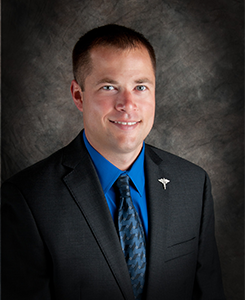
Image: omahamedical.com
Dr. Matthew Bogard is an emergency medicine professional with multiple hospitals including the Lucas County Health Center in Chariton, Iowa. In addition to his work in emergency medicine, Dr. Matthew Bogard engages with several professional organizations, including the Metro Omaha Medical Society.
The Metro Omaha Medical Society (MOMS) has served in the interests of physicians and patients throughout the Metro Omaha region for more than 150 years. Over time, the organization has established many beneficial services and programs, including the MOMS Foundation. The foundation operates with a primary goal of addressing pressing medical needs and related health concerns in the local community.
The MOMS Foundation primarily achieves its goals through extensive grant-making services. Annual grants are made to not-for-profit, health-related organizations with operations designed to impact the community. Prioritization is given to organizations that work toward addressing developing or elevated health needs, offer tested solutions and services, or have the ability to match funds on a larger health project.
More information about MOMS Foundation grant-making services, including grant applications, can be found online at www.omahamedical.com.


You must be logged in to post a comment.